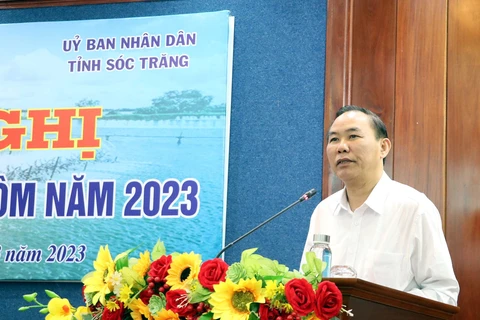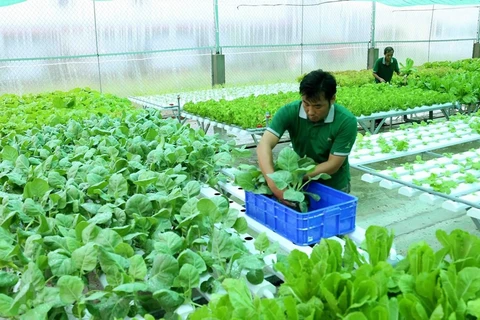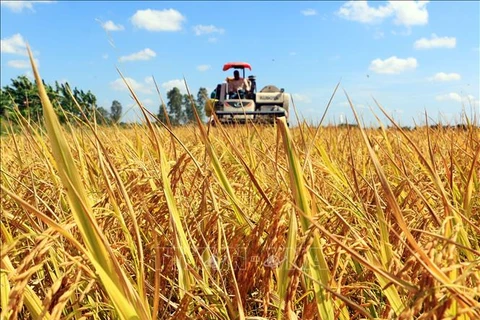Can Tho (VNA) – The Ministry of Agriculture and Rural Development (MARD), in collaboration with the International Rice Research Institute (IRRI) and relevant agencies organised a workshop on agriculture adaptive to climate change in Asian deltas.
The event was intended to promote connectivity and cooperation in materialising initiatives on agriculture adaptive to climate change, especially on the integration of the two initiatives by the Consultative Group on International Agricultural Research (CGIAR) - Excellence in Agronomy and Asian Mega-Deltas – into the implementation of the MARD’s strategy on rice cultivation.
Rice production is facing a host of challenges, especially climate change impacts, and at the same time, it is playing a role in worsening greenhouse gas emissions, heard the workshop.
Pointing to difficulties in rice production in the Mekong Delta due to traditional farming methods, climate change and water resource issues, Deputy Director of the Can Tho City Department of Agriculture and Rural Development Tran Thai Nghiem stressed that the coordination between countries and relevant sides in applying solutions and initiatives in sustainable agriculture will help to raise productivity and ease impacts on the environment.
Participating experts shared the view that farmers should receive support in mechanisation, risk management, material management and policy solutions in rice production.
The utilisation of scientific-technological solutions and mechanisation in a concerted and accurate way is crucial to rice production as it contributes to reducing greenhouse gas emissions, as well as workforce, fertilizers and varieties, while ensuring rice quality, according to IRRI Deputy Director Dr. Virender Kumar.
The experts also shared different models of connectivity between relevant sides in agriculture adaptive to climate change./.
The event was intended to promote connectivity and cooperation in materialising initiatives on agriculture adaptive to climate change, especially on the integration of the two initiatives by the Consultative Group on International Agricultural Research (CGIAR) - Excellence in Agronomy and Asian Mega-Deltas – into the implementation of the MARD’s strategy on rice cultivation.
Rice production is facing a host of challenges, especially climate change impacts, and at the same time, it is playing a role in worsening greenhouse gas emissions, heard the workshop.
Pointing to difficulties in rice production in the Mekong Delta due to traditional farming methods, climate change and water resource issues, Deputy Director of the Can Tho City Department of Agriculture and Rural Development Tran Thai Nghiem stressed that the coordination between countries and relevant sides in applying solutions and initiatives in sustainable agriculture will help to raise productivity and ease impacts on the environment.
Participating experts shared the view that farmers should receive support in mechanisation, risk management, material management and policy solutions in rice production.
The utilisation of scientific-technological solutions and mechanisation in a concerted and accurate way is crucial to rice production as it contributes to reducing greenhouse gas emissions, as well as workforce, fertilizers and varieties, while ensuring rice quality, according to IRRI Deputy Director Dr. Virender Kumar.
The experts also shared different models of connectivity between relevant sides in agriculture adaptive to climate change./.
VNA























